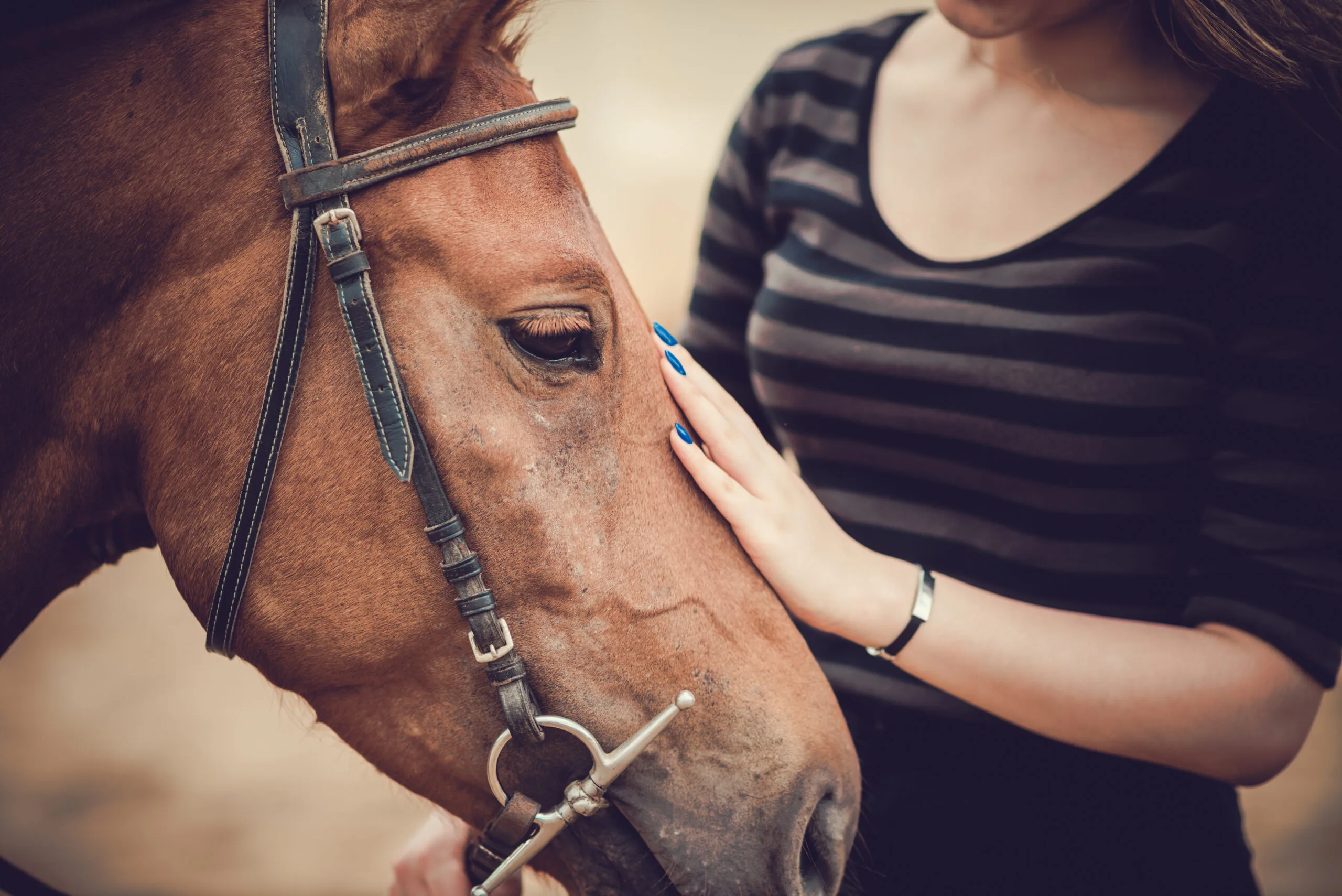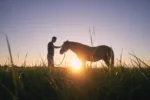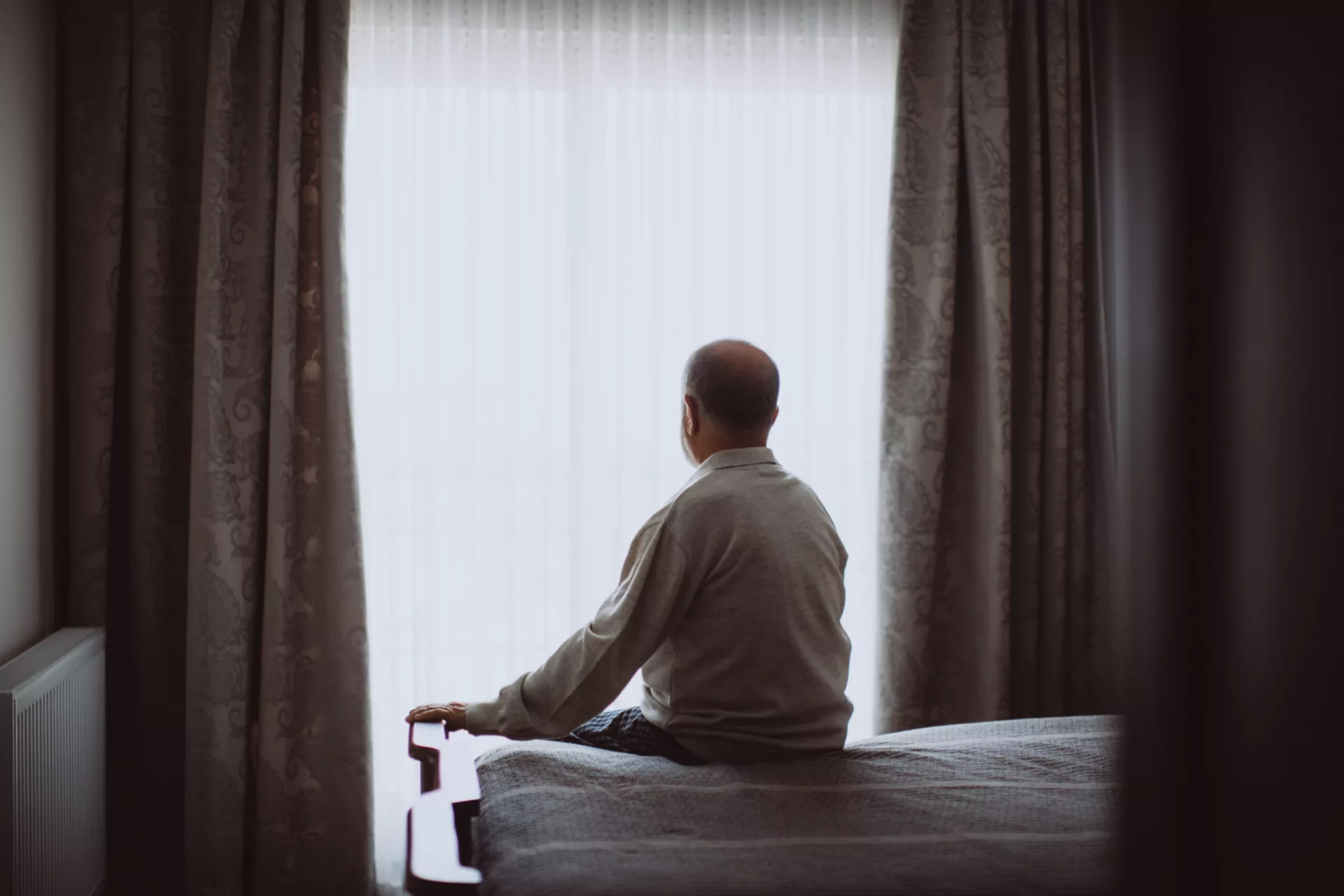
Benefits of Equine Assisted Therapy for Addiction Recovery
What is Equine-Assisted Therapy?
Equine-assisted therapy (EAT) is an experiential therapy in which the patient and therapist work together with horses to develop connection, heal trauma and build adaptive life skills. It has proven to be effective for treating and processing a multitude of diagnoses, particularly in the addiction recovery world.
Patients who elect to participate in this experiential therapy engage in activities aimed towards understanding the horse and themselves on a deeper level. Equine-assisted therapy activities may include:
- Haltering
- Grooming
- Leading
- Groundwork exercises, obstacles and games
- Connection activities
- Mounted work
- Completing chores in the barn
- Interaction with other animals on the farm
By developing a relationship with the horses, as well as competencies surrounding their care handling, participants grow in confidence, self-esteem, mindfulness, and trust.
The Power of Animals in Therapy and Addiction Recovery
Animals have a profound way of breaking through peoples’ barriers that they have built for protection against the outside world. They can often move beyond the protection and coping mechanisms that people craft against other people, helping wounded souls find an expedited path to healing. Equine assisted therapy is a profound example of this power.
Addiction is a physical challenge, however it is usually rooted in something emotional or psychological. Lasting change and healing depends greatly on identifying, addressing and healing these compromised places in peoples’ lives and hearts to make lasting changes in their behavior. While traditional therapy modalities are helpful in this process, equine assisted therapy provides a unique relational component that combines physical movement with emotional connection.
Why Horses?
Attunement: Horses are prey animals, which means they are highly sensitive. Their bodies and brains are wired to perceive the slightest changes in their environment in order to keep them safe from predators. This makes them exceptional partners in therapeutic practice, as they can often detect subtle changes in the patient’s body and energy that may go otherwise unnoticed by the therapist.
Connection: Horses are also herd animals, so they are hard-wired for connection. When they feel safe, they can create powerful bonds with other horses as well as humans. Equine assisted therapy seeks to create a space in the horse-human relationship that is safe, predictable and conducive for this deep connection to form. This is not only regulating for the horse, but the human too.
5 Benefits of Equine Assisted Therapy
1. Cultivate a greater awareness of yourself and others
Interacting with large animals can be intimidating for many people. Horses can illuminate different fears and insecurities for patients, which can be beneficial to work through with the guidance of the counselor. Oftentimes, the way people relate to different behaviors in horses can indicate the way they perceive relationships as a whole – for better and for worse. For example, people who tend to micromanage and control others may have the same impulse regarding the horses. Similarly, someone with a low self-esteem may have trouble implementing their personal boundaries. All of these are valuable opportunities for personal growth and development.
2. Develop healthy coping mechanisms and relationship skills as you build a connection with the horse
Recovery from drug and alcohol addiction requires the individual to rewire their brain, replacing toxic patterns with healthy habits. Interaction with live animals provides a real-time opportunity to “push the buttons,” challenging the patient in a controlled environment. Someone with a low frustration tolerance may become easily dysregulated if the horse doesn’t behave as they wish. This is a great time to learn a new breathing or mindfulness exercise to approach the challenge from a more balanced perspective.
As the individual grows in their ability to form healthy relationships, their sense of connection increases. Community and connection are central aspects of achieving lasting sobriety, and equine assisted therapy is a great way to develop a blueprint for how to build healthy relationships. Authentic connection is a strong pathway to lasting healing.
3. Go beyond the office to encounter the healing power of nature
Human beings are hard-wired to engage with nature in the great outdoors. Numerous studies show the power of fresh air and physical contact with the earth to promote mental and physical health and wellbeing. Equine assisted therapy brings the client beyond the four walls of the therapist’s office to encounter the sights, sounds and smells of the farm. This can be a very welcome change, especially if progress through traditional therapy has reached a plateau.
4. Move your body to integrate healing and process trauma more effectively
While trauma is oftentimes understood as a mental and emotional concept, it has a strong physical component. Memories, both good and bad, are stored subconsciously in the tissues of the body, and may be triggered at unwelcome times. Bodily sensations such as uneasiness in the stomach, sweating, ringing in the ears, tears, and shaking hands all indicate the somatic element of the emotional experience.
Healing from trauma is a large part of addiction recovery, which is both a mental and physical battle. Equine assisted therapy can encourage the integration of body and mind in order to move trauma through the body and ultimately overcome the bodily sensations pulling the individual to return to the addictive substances. Rhythmic input can be regulating to the brainstem, and can be accomplished through repetitive movements such as brushing a horse, matching steps with the horse as the patient walks alongside, and horseback riding.
5. Build self-confidence, empathy and trust
The recovery process is a vulnerable time. Addiction is oftentimes a coping mechanism used to escape the pain of the past, wounds inflicted by others, or fear of the future. It requires courage to take inventory of one’s life and experiences and make changes, daring to trust yourself to be faithful to finish what you started.
Relationships with horses can foster the bravery needed to let your guard down and face the reality of your story. By connecting with the horse in their own weakness and fears, empathy grows and mutual trust is built. Slowly, clients experience revival of parts of themselves that may have grown numb through the trials of life, and they grow in confidence to confront whatever might come their way in the future.
At what point in the recovery journey could equine assisted therapy be a good fit?
Working with horses requires bodily awareness and coordination. For safety purposes, participants should arrive in a sober state in order to engage with these majestic creatures. Equine assisted therapy may be introduced when the recovering person has developed the capacity to be substance-free for at least one day at a time.
Equine assisted therapy could be as short- or long-term as the client would like. The treatment plan will vary based on the individual’s needs and desires. Treatment length could be a mini-series of three to five sessions, or it could stretch throughout several years. This therapy modality could work in tandem with other modes of counseling as well, including guided support groups, residential programs or cognitive behavioral therapy (CBT).
Explore Equine Assisted Therapy for Your Recovery Journey
If traditional forms of addiction treatment and therapy have grown monotonous for you or your loved one, a holistic approach like equine assisted therapy could provide some much-needed variety to your recovery journey. Bluff Augusta partners with abused and rescued horses to accompany individuals recovering from drug and alcohol addiction and build a life of deeper integration and peace. Contact us online today, or call [phone_linked] to begin a new chapter of your story today.








